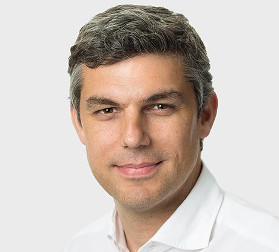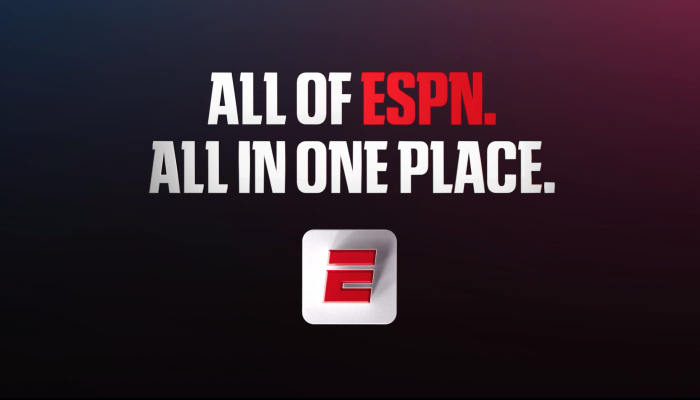New Deluxe Division Tackles Content Supply Chain Complexities
NEW YORK—Deluxe yesterday announced the formation of the Deluxe Technologies division, the company’s response to the rapid changes its customers are experiencing across the content supply chain.

Morgan Fiumi
The division will draw on the talent of 250 Deluxe engineers at six locations around the world to develop solutions addressing the breadth of the supply chain, including content creation, marketing, localization, distribution and measurement.
Chief Innovation Officer Morgan Fiumi will lead the new division, and the company has appointed Andy Shenkler as its chief product officer to head up development of technology and platforms.
The decision to launch a new division is in response to the pressures Deluxe clients are experiencing that grow out of technology changes and the way content is being consumed, says Fiumi.
In this interview, the Deluxe chief innovation officer talks about the evolving content supply chain, the need to simplify and manage the complexity of content prep for multiple locations that require various resolutions using different codecs, DRMs and metadata schemas and how the division’s offering will provide customers with on-demand access to the services they require.
TVTECHNOLOGY:In the Deluxe press announcement, you say this is the initial step in transformation of Deluxe becoming a virtualized platform company. Could you elaborate?
MORGAN FIUMI:Surething. The purpose of creating this group is to have a strategic alignment to respond and add more value to our customers and content owners.
Get the TV Tech Newsletter
The professional video industry's #1 source for news, trends and product and tech information. Sign up below.
As you know, the market is changing quite a bit as far as pressure on existing business models, technology changes and obviously how content is being consumed. It’s become increasingly important for content owners to reach their global audiences in very sort release windows.
Deluxe has always been a partner in providing the content supply chain, but the requirements of the supply chain have changed and now it requires much more specialization, scale and speed.
So, the concept behind the platform is to have a broad set of services accessible on demand in a very transparent and easy way. [We want to] provide value and allow our clients to leverage all those sets of services across the supply chain in an easy and fast manner.
These can be our existing products, such as software products, fully managed services or access to specific talent across any of the phases of the supply chain—upstream from our creative services, visual effects, color and editorial services to package and distribution to our localization all the way down to distribution of the content.
TVT:I have interviewed Deluxe for years, visited your booths at many trade shows and had several conversations about the company’s offering of virtualized playout and master control from the cloud. Is that part of this new offering?
MF: You bring up a good point. Historically, we have put out specific solutions. You are referring to our MediaCloud offering, which is very innovative, cost-effective and scalable when compared to handling [playout and master control] in a traditionally capital-intensive environment.
So, MediaCloud is a successful product for IP-based distribution. But I think in the past, it was put out as a standalone product and it didn’t fully leverage the services around it.
You can imagine if you think about content prep coming into an offering like MediaCloud, a lot goes into normalization and prepping of that content—sort of a prequalification QC process, all of the potential compliance versions, localized versions. There is a lot of media processing to enable that distribution, and we want to be able to provide those solutions, not just for IP but any sort of distribution.
We think it is important to approach it as an integrated offering and have it available as an open architecture, so if I just need playout, I can API in and access those services, but you can also leverage the whole breadth of the offering around that distribution.
TVT:The press release says the traditional supply chain has grown organically and become overly complex. What examples come to mind?
MF: There are many. The macro reasons [it is so complex] are if you take any one piece of the supply chain there are so many technology formats, and at the core, it lacks standardization across that. We help address that complexity.
If you are a content owner and you want to get it on all of these platforms, there is a plethora of formats and specs that the content needs to be prepared for. It’s not that I create just one package, but within one package I may have many resolutions, codecs, DRMs, metadata schemas and localized versions.
If you think of the whole spectrum from digital cinema down to home entertainment and digital distribution and including support at the end devices, you need to have a very flexible and scalable way to create all those versions in a very resource-efficient manor where you are managing the efficiency of the upstream work. So, the quality of the encodes, the quality of the picture is maintained throughout all the downstream versions.
Every time there is a new device or a new OTT offering, that generally requires a whole new set of capabilities that needs to be supported and integrated. I think it is the seamless integration of all those systems that creates a lot of complexity.
That’s why—as far as content owners [are concerned]—it becomes much more efficient for them to focus on creating great content and customer engagement and rely on services, such as Deluxe, to help them solve all of these issues.
TVT:We’ve talked about the MediaCloud offering and how that’s now buttressed by this end-to-end service offering. One of its benefits is the ability to spin up and spin down MediaCloud as needed. Is there a similar concept underlying all the services from the new division?
MF: Yes, that’s very much at the core. If you look at playout that’s just one example.
It’s really about how can I have access to the best possible resource in the most efficient manner and transparency on status pricing, but also have access guarantees around SLAs [Service Level Agreements] and quality. That sounds very simple, but it is actually very complicated.
Obviously, Deluxe has many years of [developing] capabilities. [The company offers] creative talent and software applications where we think the solution is really having those sets of services very much available—whether it’s a single unified portal or API with access to them on demand and have all that transparency and guarantee around them to be able to turn them on when I need them and turn them off when I don’t.
It’s a tailored offering that is not one solution for all content owners but rather whatever complements their supply chain and gives them the best possible resource at any given time.
Phil Kurz is a contributing editor to TV Tech. He has written about TV and video technology for more than 30 years and served as editor of three leading industry magazines. He earned a Bachelor of Journalism and a Master’s Degree in Journalism from the University of Missouri-Columbia School of Journalism.

